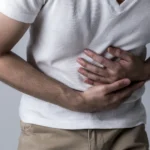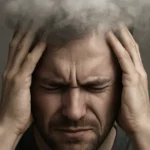
What is Dextromethorphan?
Dextromethorphan suppresses coughing. It interferes with the signals that are sent to the brain and triggers the cough reflex. Dextromethorphan can be used to treat coughs. It can be purchased over the counter alone, and it is also included in a number of over-the-counter and prescription combinations. Dextromethorphan does not treat coughs caused by asthma or emphysema, nor can it be used to treat smoking-induced coughs.
Warnings
Dextromethorphan should not be given to children younger than four years. Before giving cough or cold medications to your child, always consult a medical provider first. The misuse of cough medicines and cold medicines in very young children can lead to death. Dextromethorphan should not be used if you've taken an MAO inhibitor such as isocarboxazid, phenelzine, rasagiline, or selegiline. Dextromethorphan can cause serious, even life-threatening, effects if taken before the MAO inhibitor has been cleared. Ask your pharmacist or doctor before using any other cough, cold, or allergy medications. You may accidentally overdose on one or more medicines if you combine certain products. Check the label to see if any other medicines you use contain dextromethorphan. Dextromethorphan does not treat coughs caused by smoking or asthma.
Before you take this drug
Dextromethorphan should not be used if you've taken an MAO inhibitor such as isocarboxazid, phenelzine, rasagiline, or selegiline. Dextromethorphan can cause serious, even life-threatening, effects if taken before the MAO inhibitor has been cleared. If you suffer from chronic bronchitis or emphysema, ask your doctor about dextromethorphan. Dextromethorphan may harm an unborn child. Inform your doctor if you are pregnant or planning to become pregnant while on treatment. Dextromethorphan can pass into breastmilk. You should not take this medication unless you have told your doctor that you are breastfeeding a child. Artificially sweetened cough medicines often contain phenylalanine.If you suffer from phenylketonuria, it is important to be aware of this. If you have concerns about phenylalanine, check the label of your medication for the warnings and ingredients.
Similar/related drugs
benzonatate, benadryl, diphenhydramine, guaifenesin, mucinex, and codeine
How to take Dextromethorphan?
Do not exceed the recommended dosage or use it longer than prescribed by your physician. Use the medication only as directed. Do not take it in higher doses or for longer than prescribed. Cough medicine should be taken for only a few days until symptoms are gone. Dextromethorphan should not be given to children younger than four years. Ask a doctor first before giving cough medicine or cold medicine to your child. The misuse of cough and cold medicines by very young children can lead to death. Use a dose-measuring cup or spoon to measure the liquid dextromethorphan, not a normal table spoon. Ask your pharmacist if you don't have a dose-measuring device. Allow the dextromethorphan strip or lozenge to dissolve in your throat. While taking this medication, drink extra fluids to loosen congestion and lubricate the throat. If your symptoms don't improve within 7 days or you experience a fever, headache, cough, or skin rash, talk to your doctor. Tell the surgeon if you've taken dextromethorphan in the last few days. Store dextromethorphan away from heat and light.
What happens if I miss the dose?
You may not have a regular schedule of dosages since cough medicines are usually only taken as needed. Take the missed dose immediately if you take the medication regularly.If the next dose is near, skip any missed ones and wait.Take the medicine as prescribed. Do not take more to make up for a missed dose.
What happens if I overdose?
If you suspect that you may have taken too much medicine, seek immediate medical attention. Overdose symptoms include nausea, vomiting, and dizziness. They may also include difficulty breathing, a rapid heartbeat, or seizures. Overdose may also cause coma or even death.
What should be avoided?
Avoid alcohol. Alcohol can increase dextromethorphan side effects. This medication may cause side effects that can impair your reactions or thinking. Be mindful when driving or engaging in any task which requires alertness. Do not take diet pills, caffeine tablets, or stimulants without consulting your doctor. Take a stimulant with cough medicine to increase the risk of side effects. Consult your pharmacist or doctor before using any other over-the-counter allergy, cough, or cold medication. Many combination medications available over-the-counter contain dextromethorphan. You may accidentally overdose on this medication if you combine certain products. Check the label to see if any other medicines you use contain dextromethorphan.
Side effects of Dextromethorphan
If you experience any of the following symptoms of an allergic reaction, seek immediate medical attention: hives, difficulty breathing, swelling of the face, lips, or tongue, or swelling of the throat. If you experience any of the following serious side effects, stop using dextromethorphan immediately and contact your doctor.
- Severe dizziness or anxiety
- Seizures or convulsions;
- Confusion, hallucinations;
- Slow, shallow breathing
You are more likely to experience less serious side effects, such as nausea or stomach upset. There may be other side effects of dextromethorphan.Call your physician if experiencing side effects. Additionally, the FDA can be reached at 1-800-FDA-1088 in order to report them.
Interaction with other drug
Tell your doctor before taking dextromethorphan if you use any of these drugs:
- Celecoxib (celebrex)
- Cinacalcet (sensipar);
- Darifenacin (enablex);
- Imatinib (gleevec);
- Quinidine (quinaglute, quinidex);
- Ranolazine (ranexa)
- Norvir, ritonavir
- Sibutramine (meridia);
- Terbinafine (lamisil);
- High blood pressure medications;
- Antidepressant medication such as amitriptyline, bupropion, fluoxetine, fluvoxamine, imipramine, tofranil, paroxetine, sertraline, and others.
There are many other drugs that can interact with dextromethorphan. Inform your doctor of all prescription and non-prescription medications that you take. Included herein are vitamins, minerals, herbal products and any medications prescribed by doctors. Never start a new medication before consulting your doctor.




